-
×
 SAFRIDERM SKIN BRIGHTENING FACE WASH 100ml
₨ 990
SAFRIDERM SKIN BRIGHTENING FACE WASH 100ml
₨ 990 -
×
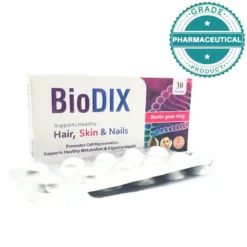 BIODIX HAIR, SKIN, NAILS SUPPLEMENTS 30 TABLETS
₨ 4,500
BIODIX HAIR, SKIN, NAILS SUPPLEMENTS 30 TABLETS
₨ 4,500 -
×
 E.l.f BERRY SORBET MATTE LIPSTICK 1.4g
₨ 3,980
E.l.f BERRY SORBET MATTE LIPSTICK 1.4g
₨ 3,980 -
×
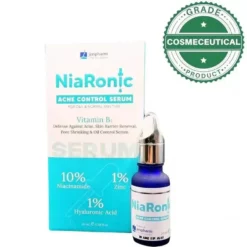 NIARONIC ACNE CONTROL SERUM (10% Niacinamide, 1% Zinc, 1% Hyaluronic Acid) 20ml
₨ 1,598
NIARONIC ACNE CONTROL SERUM (10% Niacinamide, 1% Zinc, 1% Hyaluronic Acid) 20ml
₨ 1,598 -
×
 DERMAXIL HYDRATING BODY MOISTURISER 150ml
₨ 1,980
DERMAXIL HYDRATING BODY MOISTURISER 150ml
₨ 1,980 -
×
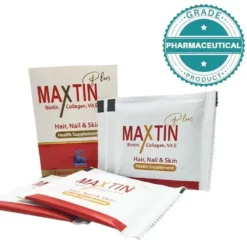 MAXTIN PLUS HAIR NAIL AND SKIN HEALTH SUPPLEMENT | PACK OF 10
₨ 1,622
MAXTIN PLUS HAIR NAIL AND SKIN HEALTH SUPPLEMENT | PACK OF 10
₨ 1,622 -
×
 ANTONYM BAKED HIGHLIGHTING BLUSH, LILY SHADE, 6.5g -NATURAL FLUSH
₨ 6,045
ANTONYM BAKED HIGHLIGHTING BLUSH, LILY SHADE, 6.5g -NATURAL FLUSH
₨ 6,045 -
×
 Lotion for Stretch Marks - Striderm Stretch Marks Lotion with Collagen
₨ 1,190
Lotion for Stretch Marks - Striderm Stretch Marks Lotion with Collagen
₨ 1,190 -
×
 HUDSON CLEANSER GENTLE CLEANSING FORMULA FOR ALL SKIN TYPES 150ml
₨ 1,250
HUDSON CLEANSER GENTLE CLEANSING FORMULA FOR ALL SKIN TYPES 150ml
₨ 1,250 -
×
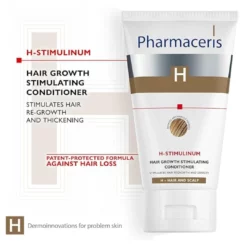 PHARMACERIS H STIMULINUM Hair Conditioner (150ml) - Imported from Poland
₨ 5,625
PHARMACERIS H STIMULINUM Hair Conditioner (150ml) - Imported from Poland
₨ 5,625 -
×
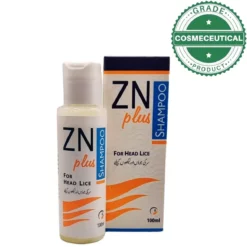 ZN PLUS SHAMPOO FOR HEAD LICE 100ml
₨ 308
ZN PLUS SHAMPOO FOR HEAD LICE 100ml
₨ 308 -
×
 BB BLOOM ALL IN ONE BB CREAM 30g
₨ 1,599
BB BLOOM ALL IN ONE BB CREAM 30g
₨ 1,599 -
×
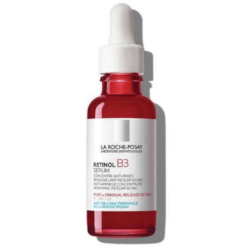 LA ROCHE POSAY RETINOL B3 SERUM 30ml
₨ 14,348
LA ROCHE POSAY RETINOL B3 SERUM 30ml
₨ 14,348 -
×
 LOREAL AGE PERFECT ANTI-AGING DAY CREAM 50ml
₨ 5,495
LOREAL AGE PERFECT ANTI-AGING DAY CREAM 50ml
₨ 5,495 -
×
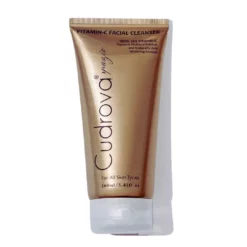 Cudrova Spazio Vitamin C Brightening Facial Cleanser (160ml) - For All Skin Types
₨ 1,795
Cudrova Spazio Vitamin C Brightening Facial Cleanser (160ml) - For All Skin Types
₨ 1,795 -
×
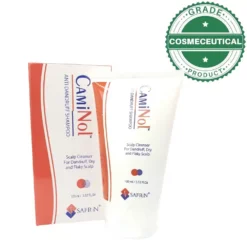 CAMINOL ANTI DANDRUFF SHAMPOO 100ml
₨ 850
CAMINOL ANTI DANDRUFF SHAMPOO 100ml
₨ 850 -
×
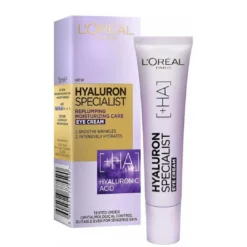 L'OREAL PARIS- HYALURON EXPERT, REPLUMPING MOISTURIZING EYE CREAM 15ml
₨ 2,699
L'OREAL PARIS- HYALURON EXPERT, REPLUMPING MOISTURIZING EYE CREAM 15ml
₨ 2,699 -
×
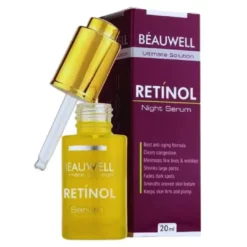 BEAUWELL Retinol Serum with 5% Hyaluronic Acid | Anti-Aging & Skin Rejuvenation
₨ 5,700
BEAUWELL Retinol Serum with 5% Hyaluronic Acid | Anti-Aging & Skin Rejuvenation
₨ 5,700 -
×
 SOFT GLAM EYESHADOW PALLETE BY ANASTASIA
₨ 20,576
SOFT GLAM EYESHADOW PALLETE BY ANASTASIA
₨ 20,576 -
×
 TOO FACED BORN THIS WAY MULTI-USE COMPLEXION POWDER SHORTBREAD 10g
₨ 10,890
TOO FACED BORN THIS WAY MULTI-USE COMPLEXION POWDER SHORTBREAD 10g
₨ 10,890 -
×
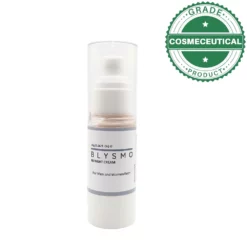 BLYSMO BB NIGHT CREAM FOR MEN AND WOMEN BOTH 30g
₨ 2,450
BLYSMO BB NIGHT CREAM FOR MEN AND WOMEN BOTH 30g
₨ 2,450 -
×
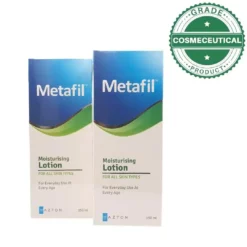 METAFIL MOISTURISING LOTION FOR ALL SKIN TYPES 150ml
₨ 1,750
METAFIL MOISTURISING LOTION FOR ALL SKIN TYPES 150ml
₨ 1,750
You may be interested in…
-
Add
 Lirene Creamy Almond Wash Gel with D-Panthenol 150ml
Rated 5.00 out of 5(6) ₨ 2,000
Lirene Creamy Almond Wash Gel with D-Panthenol 150ml
Rated 5.00 out of 5(6) ₨ 2,000 -
Add
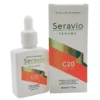 Serum C Vitamin - Seravio SERUMS C20 Brightening & Anti-Aging Solution (30ml)
Rated 4.80 out of 5(5) ₨ 2,517
Serum C Vitamin - Seravio SERUMS C20 Brightening & Anti-Aging Solution (30ml)
Rated 4.80 out of 5(5) ₨ 2,517 -
Add
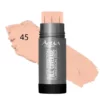 Aqua Color Line Matte Perfection Full Coverage Foundation Stick (Shade-45) - derma.pk
Rated 4.40 out of 5(10) ₨ 660
Aqua Color Line Matte Perfection Full Coverage Foundation Stick (Shade-45) - derma.pk
Rated 4.40 out of 5(10) ₨ 660 -
Add
 Glamorous Face Loose Face & Body Shimmer Powder 09 Bronze
Rated 4.42 out of 5(12) ₨ 449
Glamorous Face Loose Face & Body Shimmer Powder 09 Bronze
Rated 4.42 out of 5(12) ₨ 449 -
Add
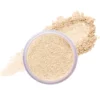 Glamorous Face Loose Face & Body Shimmer Powder 10 White Gold
Rated 4.50 out of 5(12) ₨ 449
Glamorous Face Loose Face & Body Shimmer Powder 10 White Gold
Rated 4.50 out of 5(12) ₨ 449







